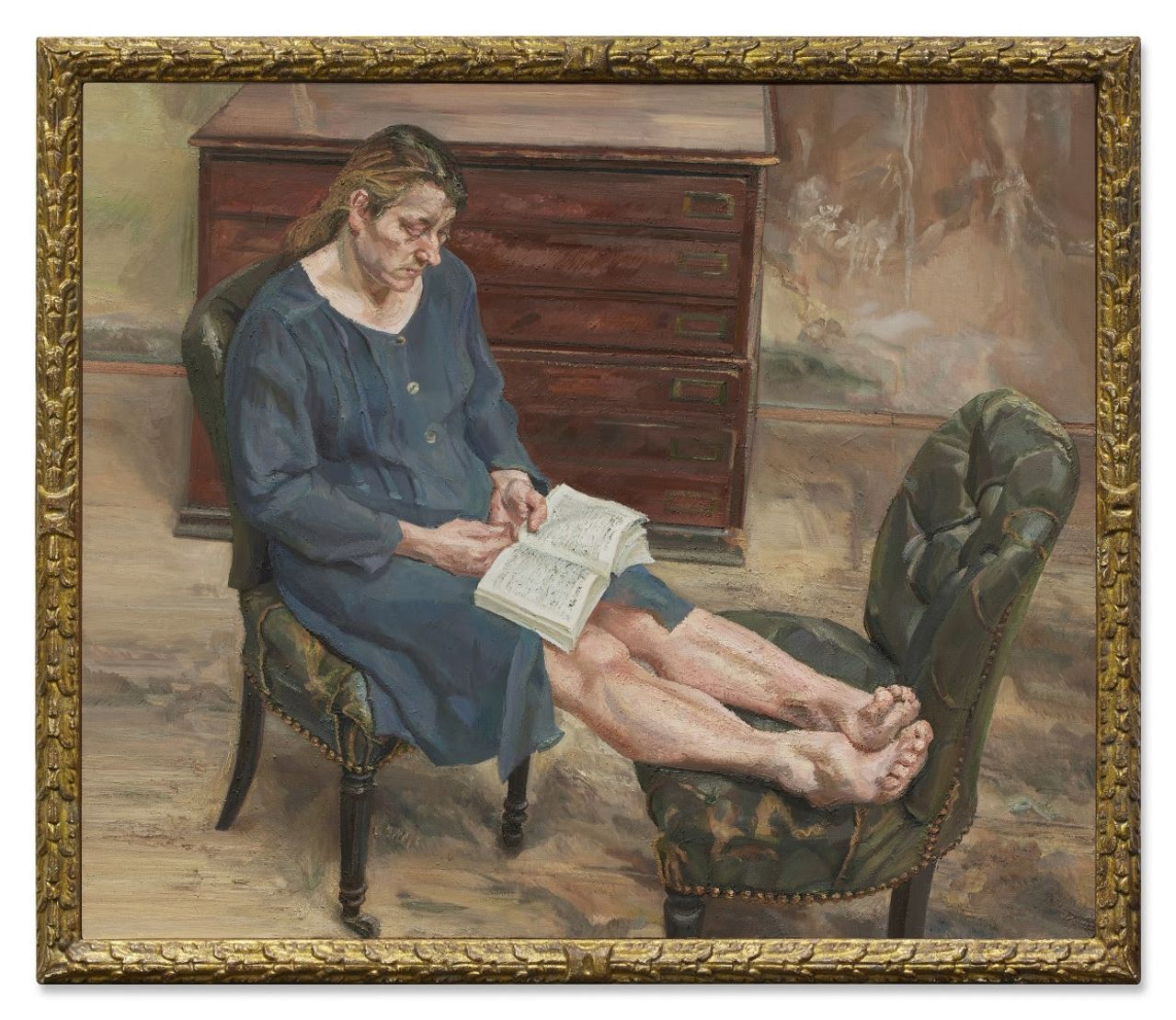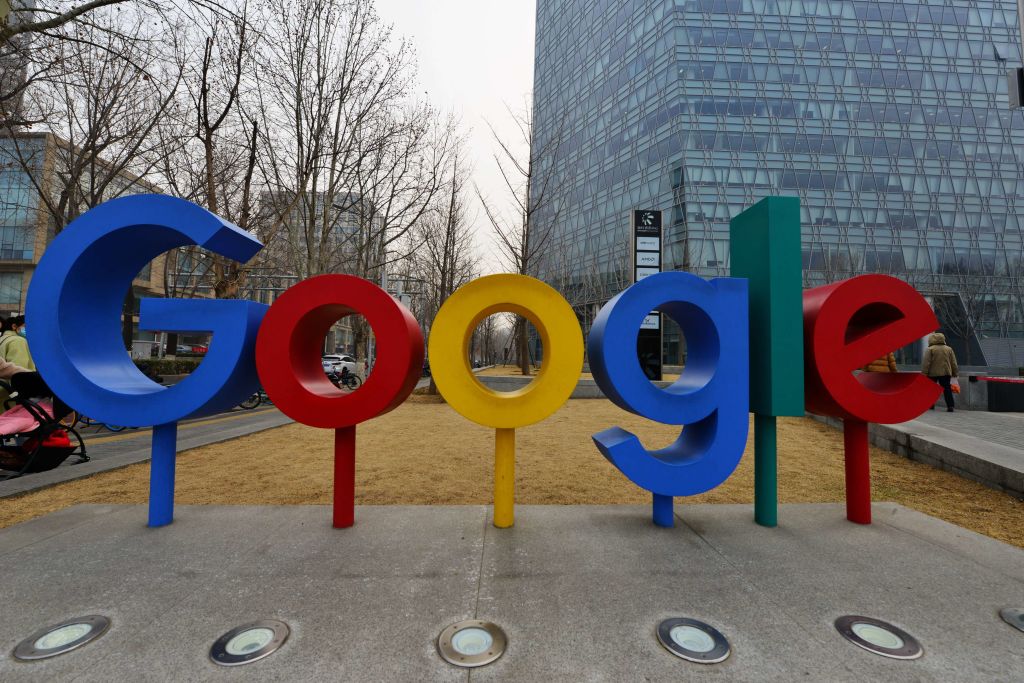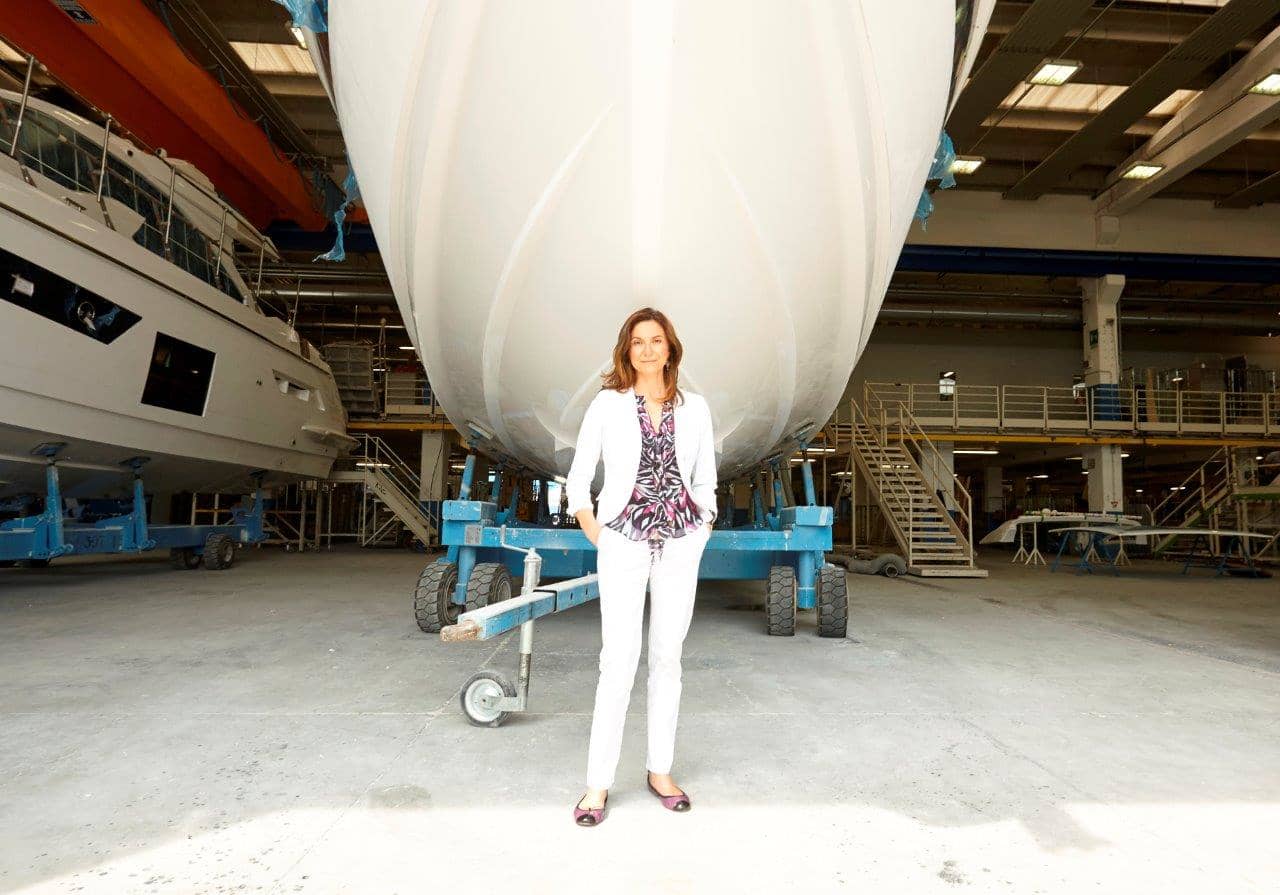Lucian Freud’s Portrait of His Daughter Debuts at Auction With an Estimate Over $18 Million
A portrait Lucian Freud painted of his daughter Isobel in 1997 will make its auction debut on March 1 at Sotheby’s London, with an estimate of between £15 million and £20 million (US$18 million and US$24 million).
Painted over a year with more than 70 sittings, the portrait depicts Isobel Boyt, known as Ib to her family, reading Marcel Proust’s 4,000-page novel Remembrance of Things Past, wearing a loose dress, with her bare feet up on a chair and the book in her lap.
The portrait, aptly titled Ib Reading, was acquired by a private collector shortly after its creation and has remained in the same collection since. It was last seen publicly more than 20 years ago in an exhibition in New York, according to Sotheby’s.
The portrait will be offered as a highlight of Sotheby’s evening auction of modern and contemporary art.
Other star lots of the sale include Pablo Picasso’s portrait of his daughter, Maya, formerly owned by Gianni Versace and estimated to sell for between £12 million and £20 million; a newly restituted painting by Wassily Kandinsky, Murnau mit Kirche II, which is expected to fetch in the region of £35 million; and one of Gerhard Richter’s Abstract masterpieces, Abstraktes Bild, estimated in excess of £20 million.
Freud’s Ib Reading is one of five painted portraits of his daughter. The first was Large Interior, Paddington (1968-69), which was made when Isobel was just seven years old. The portrait is now in the collection of the Museo Nacional Thyssen-Bornemisza in Madrid, Spain, which is hosting a major retrospective of the artist, Lucian Freud: New Perspectives, until June.
In 1992, Freud also painted Isobel with the father of her children, while she was pregnant with her youngest daughter Alice.
“My father never chose the pose of his sitters. He would often make suggestions, but he never said, ‘I want you wearing this and sitting there’. There were limited possibilities with the studio too,” Isobel, 60, said in a statement through Sotheby’s.
Reading the novel Remembrance of Things Past while sitting for her father was her own choice, she said in the statement. “I wished to read. It was something I normally wouldn’t have time to do with three young children. It was an opportunity,” she said.
Freud’s auction record was set by his painting Large Interior W11 (After Watteau), 1981-83, which sold from the collection of Paul Allen for US$86.3 million last November at Christie’s in New York.
 Copyright 2020, Dow Jones & Company, Inc. All Rights Reserved Worldwide. LEARN MORE
Copyright 2020, Dow Jones & Company, Inc. All Rights Reserved Worldwide. LEARN MORE
This stylish family home combines a classic palette and finishes with a flexible floorplan
Just 55 minutes from Sydney, make this your creative getaway located in the majestic Hawkesbury region.
Continued stagflation and cost of living pressures are causing couples to think twice about starting a family, new data has revealed, with long term impacts expected
Australia is in the midst of a ‘baby recession’ with preliminary estimates showing the number of births in 2023 fell by more than four percent to the lowest level since 2006, according to KPMG. The consultancy firm says this reflects the impact of cost-of-living pressures on the feasibility of younger Australians starting a family.
KPMG estimates that 289,100 babies were born in 2023. This compares to 300,684 babies in 2022 and 309,996 in 2021, according to the Australian Bureau of Statistics (ABS). KPMG urban economist Terry Rawnsley said weak economic growth often leads to a reduced number of births. In 2023, ABS data shows gross domestic product (GDP) fell to 1.5 percent. Despite the population growing by 2.5 percent in 2023, GDP on a per capita basis went into negative territory, down one percent over the 12 months.
“Birth rates provide insight into long-term population growth as well as the current confidence of Australian families,” said Mr Rawnsley. “We haven’t seen such a sharp drop in births in Australia since the period of economic stagflation in the 1970s, which coincided with the initial widespread adoption of the contraceptive pill.”
Mr Rawnsley said many Australian couples delayed starting a family while the pandemic played out in 2020. The number of births fell from 305,832 in 2019 to 294,369 in 2020. Then in 2021, strong employment and vast amounts of stimulus money, along with high household savings due to lockdowns, gave couples better financial means to have a baby. This led to a rebound in births.
However, the re-opening of the global economy in 2022 led to soaring inflation. By the start of 2023, the Australian consumer price index (CPI) had risen to its highest level since 1990 at 7.8 percent per annum. By that stage, the Reserve Bank had already commenced an aggressive rate-hiking strategy to fight inflation and had raised the cash rate every month between May and December 2022.
Five more rate hikes during 2023 put further pressure on couples with mortgages and put the brakes on family formation. “This combination of the pandemic and rapid economic changes explains the spike and subsequent sharp decline in birth rates we have observed over the past four years,” Mr Rawnsley said.
The impact of high costs of living on couples’ decision to have a baby is highlighted in births data for the capital cities. KPMG estimates there were 60,860 births in Sydney in 2023, down 8.6 percent from 2019. There were 56,270 births in Melbourne, down 7.3 percent. In Perth, there were 25,020 births, down 6 percent, while in Brisbane there were 30,250 births, down 4.3 percent. Canberra was the only capital city where there was no fall in the number of births in 2023 compared to 2019.
“CPI growth in Canberra has been slightly subdued compared to that in other major cities, and the economic outlook has remained strong,” Mr Rawnsley said. “This means families have not been hurting as much as those in other capital cities, and in turn, we’ve seen a stabilisation of births in the ACT.”
This stylish family home combines a classic palette and finishes with a flexible floorplan
Just 55 minutes from Sydney, make this your creative getaway located in the majestic Hawkesbury region.






















